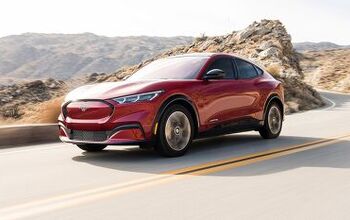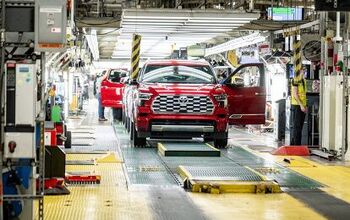ABC's Modern Family: Why No Toyota Terror?
An article in this week’s Advertising Age and Automotive News (they’re sister publications) investigates why the family in the new hit sitcom ‘Modern Family’ “still drives Toyota product.” The author found it “jarring” that the family “chatted happily while traveling in, of all things, a Toyota.” The answer: Toyota paid for product placement, the contract runs through the end of the season, and many of the episodes have already been shot.
The article states that, in the past, when a company was hit by a crisis, such as a plane crash, all of that company’s ads were usually pulled as soon as possible. The author doesn’t seem to realize that this was done for the sake of the advertiser, in case it wanted to alter the message sent or wait until the crisis was over to resume advertising. It wasn’t done to distance the network from the advertiser, as the author assumes when asking why the network has risked “negative rub-off” by linking its hit show “to the brouhaha.”
It makes more sense to ask, as the article also does, why Toyota hasn’t requested that its cars be removed from the show. The answer in this case is obvious: the last thing Toyota would want to do is imply that its cars are too unsafe to drive by pulling them from the show.
Ultimately there’s no conflict, and so no real point to the article. The network wants the Toyotas in the show because they get product placement money and they don’t want to reshoot any scenes. Toyota wants to keep its cars in the show because it’s effective advertising and to do otherwise would increase generally unfounded suspicions about their safety. And there’s no valid reason the cars shouldn’t still be in the show, except that the scattered explicit product references can be mildly irritating.
What I personally found “jarring:” in the most recent episode the family let its oldest daughter, who just got her license on her third attempt and who is clearly not a safe driver, go off by herself in their brand-new Sienna minivan. Having drivers like this girl on the road without any supervision–now that’s unsafe.
Michael Karesh owns and operates TrueDelta, an online source of auto pricing and reliability data
Michael Karesh lives in West Bloomfield, Michigan, with his wife and three children. In 2003 he received a Ph.D. from the University of Chicago. While in Chicago he worked at the National Opinion Research Center, a leader in the field of survey research. For his doctoral thesis, he spent a year-and-a-half inside an automaker studying how and how well it understood consumers when developing new products. While pursuing the degree he taught consumer behavior and product development at Oakland University. Since 1999, he has contributed auto reviews to Epinions, where he is currently one of two people in charge of the autos section. Since earning the degree he has continued to care for his children (school, gymnastics, tae-kwan-do...) and write reviews for Epinions and, more recently, The Truth About Cars while developing TrueDelta, a vehicle reliability and price comparison site.
More by Michael Karesh
Latest Car Reviews
Read moreLatest Product Reviews
Read moreRecent Comments
- Kjhkjlhkjhkljh kljhjkhjklhkjh since most EVs are north of 70k specc'ed out + charger installation this is not news. You don't buy a new car every few years.This is simply saturation and terrible horrible third world country level grid infrastructure (thanks greedy exces like at the holiday farm fire where I live)
- MaintenanceCosts I think pretty much all of the difference between this year and last year is that the right-wing noise machine, facing an audience crisis, has decided that EVs, and wildly distorted claims about EVs and EV mandates, are a good way to to get gullible people angry and start replacing lost traffic.
- MaintenanceCosts I'd like to see a comparison between this and the base Model S, which should have similar performance numbers.I spent five days and 500 miles with a base 2022 Model S in Texas last week, and enjoyed it far more than my previous Model 3 drives - I think the Model S is a very good to excellent car, although "FSD" is a huge fail and I'd still have a lot of trouble giving Elon Musk money.
- DesertNative In hindsight, it's fascinating to see how much annual re-styling American cars received in the 1950's. Of course, that's before they had to direct their resources to other things like crash-worthiness, passenger safety, pollution controls, etc. It was a heady time for car designers, but the rest of us have benefited immeasurably from the subsequent changes.
- Cprescott Aside for how long it takes to charge golf carts since I don't live in a place where I can have my own charger, is the game that golf cart makers play when your battery fails and they blame you and charge you $15-25k to replace them.

































Comments
Join the conversation
Call it a hunch, but somehow I think Toyota was responsible for the survivors crashing on the island in "Lost". (Sorry. I'm just excited that it's coming on tonight!)
The fact that the article author even raises this is idiotic but this shows you how badly Toyota has farked up the PR campaign among the unwashed masses. In MSM terms, the name "Toyota" is now synonymous with "death trap" and you can no longer present a Toyota in a program as just a normal car (unless you are being bribed to). From now on if a Toyota appears in a sit-com it can only be the butt of a joke. The name of the company is no longer "Toyota" but "Toyota afflicted with sudden acceleration" - how many strokes is that and is it a lucky #? Oh my.